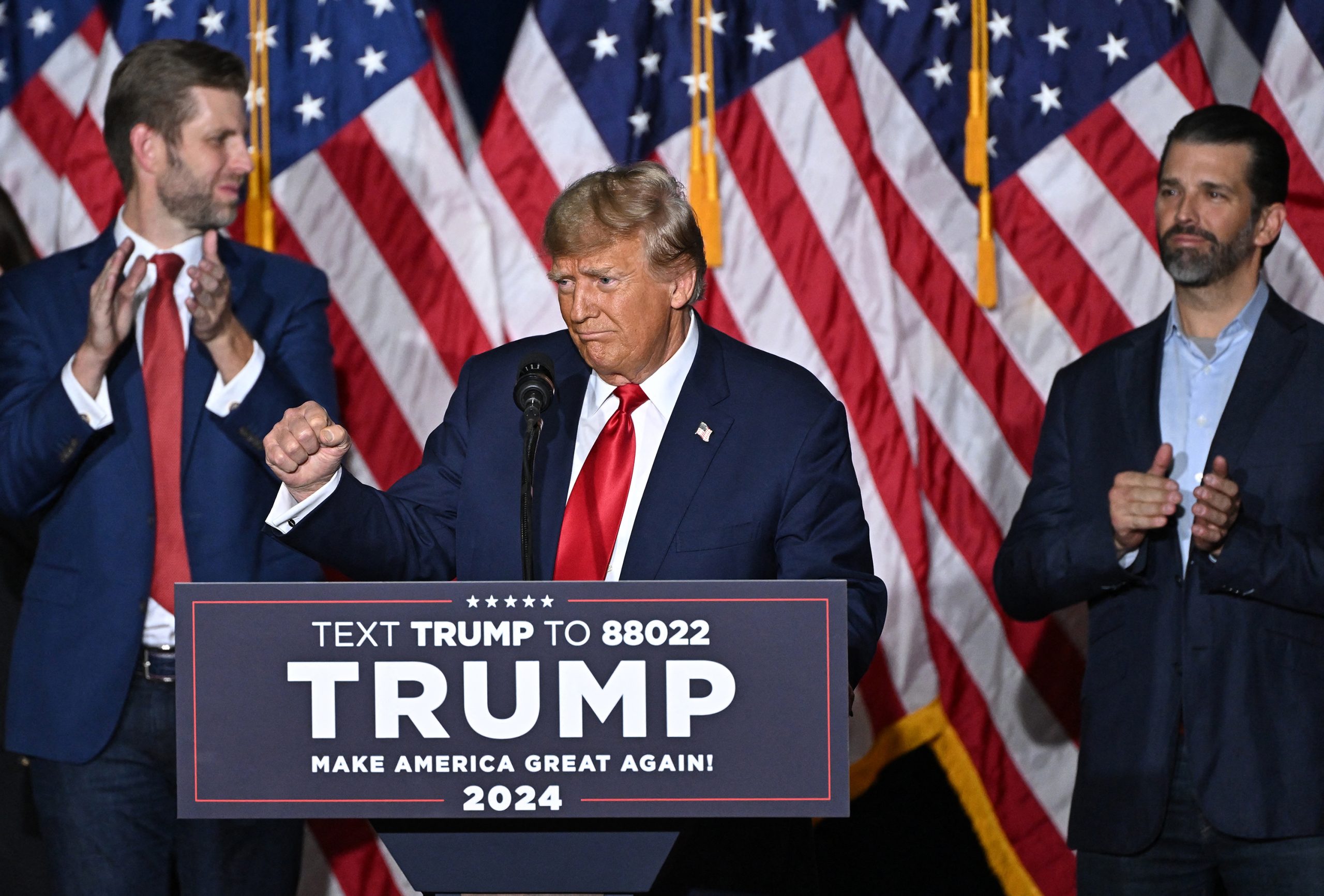Former US President Donald Trump, currently the leading Republican contender for the 2024 election, is facing the critical decision of selecting a potential running mate. Trump, holding a substantial lead in recent polls, emphasized the need for a vice president capable of assuming the presidency in case of an emergency. As the Republican field narrows, questions linger about Trump’s criteria for choosing a running mate if he secures the GOP nomination.
Trump, 77, shared his perspective on the matter during an interview with Fox News host Maria Bartiromo. “Always it’s gotta be who is going to be a good president,” Trump remarked, underlining the importance of preparedness for unforeseen circumstances. While he stated that the selection process will take some time, Trump mentioned individuals who have caught his attention.
South Carolina Senator Tim Scott was among the potential contenders Trump highlighted. Although praising Scott, Trump expressed reservations about his low-key demeanor. Additionally, South Dakota Governor Kristi Noem has captured Trump’s interest, despite her earlier statement that she would not run against him.
Recent reports speculating about Trump’s outreach to former Democrat Robert F. Kennedy Jr. as a running mate were denied by both parties. Trump dismissed the claims during his Fox News appearance, categorically stating that such discussions “never happened.”
Notably, Trump’s previous vice president, Mike Pence, severed ties with the former president after the January 2021 Capitol riots. Pence’s refusal to comply with Trump’s demands during the electoral certification process marked the end of their political alliance. As Trump navigates the complex decision-making process, the choice of a running mate is poised to be a pivotal aspect of his potential 2024 presidential campaign.
The official role of the Vice President of the United States is outlined in the U.S. Constitution. The primary responsibilities and roles of the Vice President include:
- Presiding Over the Senate: The Vice President serves as the President of the Senate. However, they only vote in the event of a tie, and their main role is to preside over the Senate sessions. In practice, this duty is often delegated to the President pro tempore, a senior senator.
- Ceremonial Duties: The Vice President participates in various ceremonial functions, both domestically and internationally, representing the United States. This includes attending state funerals, official ceremonies, and events.
- Succession to the Presidency: One of the most crucial roles of the Vice President is to be ready to assume the presidency in case of the President’s death, resignation, or incapacity. The 25th Amendment provides a process for the Vice President to assume the role of Acting President in certain situations.
- Advisory Role: The Vice President may advise the President on various matters, but the extent of this influence can vary depending on the relationship between the President and Vice President.
- Public Advocacy: The Vice President may engage in public advocacy on specific issues or policy initiatives, often reflecting the priorities of the administration.
It’s important to note that the influence and involvement of a Vice President in various aspects of governance can vary based on the administration, the working relationship with the President, and the specific skills and preferences of the Vice President.
Shayne Heffernan









